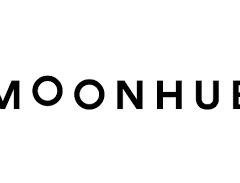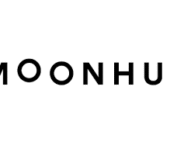Facing persistent financial and staffing pressures, healthcare payers are increasingly adopting data analytics platforms to streamline operations, reduce costs, and enhance member outcomes. A new April 2025 report from KLAS Research offers its first evaluation of payer experiences with these solutions, highlighting key vendors and emerging trends.
The Growing Role of Data Analytics in Payer Operations
With healthcare organizations under constant pressure to improve efficiency and decision-making, data analytics tools provide critical visibility into claims data, utilization patterns, and financial performance. These platforms enable payers to:
- Identify cost-saving opportunities
- Optimize utilization management
- Enhance employer group insights
- Improve data ingestion and management
While KLAS’ research in this space is still evolving, the initial report assesses three leading vendors, with plans to expand coverage as more data becomes available.
Key Vendor Performances
1. MedInsight – Best in KLAS 2025 (Score: 85.8)
- Strengths: High adoption of analytics, advanced analytics, and data management tools.
- User Feedback: Customers appreciate the platform’s transparency, ease of use, and strong financial performance insights.
- Cloud Transition: The new cloud-based platform is gaining traction, though some users report delays in migration timelines.
2. MedeAnalytics (Score: 87.1)
- Strengths: Strong data ingestion capabilities, particularly in linking multiple claims to a single admission.
- User Feedback: Positive experiences with account management and vendor responsiveness, though some desire better training and more actionable cost-saving recommendations.
3. Clarify Health Solutions
- Limited Data: Fewer users reported, but existing customers express satisfaction with services.
4. Salesforce Health Cloud
- In Tectonic’s opinion, Salesforce Health Cloud is a definite inclusion.
- Salesforce Health Cloud integrates with Tableau CRM and Einstein Analytics to provide healthcare providers with advanced data analytics capabilities. These tools enable the analysis of patient data and interactions, leading to improved patient engagement, care effectiveness, and risk management.
- Salesforce Health Cloud acts as a central hub for patient information, integrating clinical data from EHRs and other sources. This unified view allows for a more holistic understanding of each patient.
- By analyzing patient data, Salesforce Health Cloud helps healthcare providers understand individual patient needs and preferences, enabling personalized care plans and engagement strategies.
- Analytics tools like Einstein Analytics can identify patterns and trends in patient data, helping healthcare providers optimize workflows and improve the effectiveness of care delivery.
- As well as Population Health Management, Enhanced Reporting and Analytics, Predictive and Prescriptive Analytics, and AI-Driven Insights.
Looking Ahead: Expanding the Vendor Landscape
Additional players like CareJourney (acquired by Arcadia in 2024), Cedar Gate Technologies, and Cognizant are expected to be evaluated in future KLAS reports as more performance data emerges.
The Bottom Line
As payers seek greater efficiency and data-driven decision-making, analytics platforms are becoming indispensable. While MedInsight and MedeAnalytics lead in early adoption, the competitive landscape is still evolving—making future KLAS insights critical for payer organizations evaluating their options.
Next Steps:
- Monitor cloud migration progress for smoother transitions.
- Prioritize vendor training and support to maximize platform utility.
- Stay tuned for expanded KLAS coverage as more vendors enter the assessment.
With the right analytics partner, payers can unlock cost savings, operational efficiencies, and better member outcomes—key priorities in today’s challenging healthcare environment.













